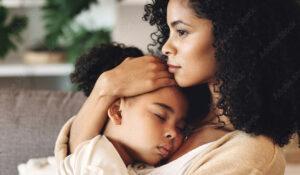
In almost 20 years of doing therapy, I’ve come to discover a few universal threads that weave themselves through all our lives. Whenever I take a step back and look at the experiences of my clients as a window into what it means to be human, I always get brought back to one consistent theme: the belief in our brokenness. Over and over, in almost every single therapeutic process I get to be part of, I see traces of that common core belief. Through many intimate conversations over many years, I’ve come to discover that this belief about our unworthiness is more common than any of us realize.
The belief that we are unworthy, that we are not enough, takes root very early in our lives. Before we have the conscious ability to thoughtfully reach this conclusion, we unconsciously determine that it must be true. There are evolutionary reasons for this. As defenseless, dependent beings, children quickly grasp how little control they have over their world. But what’s one thing they can control? Themselves. This is where the belief in unworthiness begins—because if I am the problem, then maybe I can be the solution.
If I assume that I’m the reason my needs aren’t being met; the reason my parents seem so exhausted and overwhelmed; the reason my siblings are getting everyone’s attention; the reason things feel so scary and unpredictable, then maybe I can do something about it. I can make sure to make others happy with me, so I don’t give them anything else to worry about. I can hold back my needs and try not to bother anyone, so I don’t make things worse.
As it turns out, believing there’s something wrong with us was, at one point, a strategy for survival. But over time, this belief takes root inside us and starts to influence the way we see ourselves, the way we carry ourselves, and the way we engage with others.
At some point in the therapy process, almost every single person I’ve ever worked with comes into contact with an unworthiness belief. Usually, when it comes out, it’s attached to a second core belief: one that’s equally damaging, equally scary, equally common, and equally untrue. Not only do most of us deal with believing there’s something wrong with us, we also believe that we’re the only ones dealing with it. The thought process tends to go a little like this:
There’s something deeply, fundamentally wrong with me. And if others knew how broken/damaged/undeserving/unlovable I actually am, they wouldn’t want anything to do with me.
That’s a pretty painful thing to walk around believing, isn’t it? Yet so many of us are walking around this way, cut off from each other out of fear and shame. And while we’re all playing small and safe, hiding and performing so that nobody catches on to our unworthiness or brokenness, we fail to see the universal quality of our condition. We fail to see that actually, we’re all in this together. I can’t help but smile when I touch on this ironic truth that emerges from the work I get to do with people. The only thing that’s really wrong with us is the belief that there’s something wrong with us. And one of the biggest reasons we feel alone is that we’re keeping each other at a distance, already believing we’re alone in our experience. It’s interesting to consider that if we all could just recognize how universal this core belief is, we could stop feeling so shut down, fearful, and ashamed around each other. We could let ourselves be fully and imperfectly human, understanding that all we’re surrounded by are other imperfect humans.
Waking up from the dream of unworthiness is a vital step on the path toward personal growth and transformation. It’s a process of
- healing the child within, who did the best they could with what they had,
- coming into a more gracious, loving, and accepting relationship with ourselves,
- choosing who we wish to be in each moment, rather than continuing to run on old, outdated programs,
- being generous in our interpretations of others’ actions, understanding that it’s easier to be forgiving of others’ flaws when we are accepting of our own.
Most importantly, it’s a process of entering a state of awareness that allows us to be fully connected to ourselves and others. In this way, waking up from the dream of unworthiness isn’t just about healing, it’s about freedom—the freedom to discover that we were never broken or alone to begin with.





